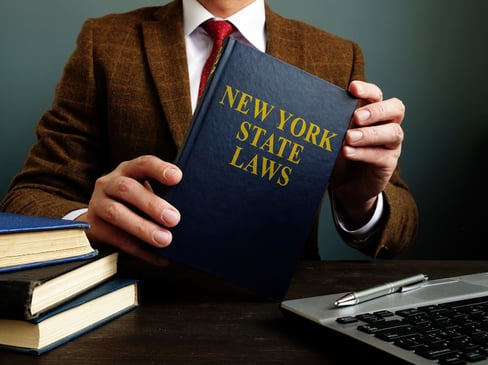
On December 15, 2020, New York State amended Title 15 (“Statutory short form and other powers of attorney for financial and estate planning”) of Article 5 of New York State’s General Obligations Law. Chapter 323 of the Laws of 2020 is effective on “the 180th day after it shall have become a law, provided, that any statutory short form power of attorney and any statutory gifts rider executed by a principal and valid at the time executed by such principal shall remain valid, as will any revocation of a prior power of attorney that was delivered to an agent prior to the effective date of this act.”According to the Memorandum in Support, this legislation was deemed necessary because “[t]he Power of Attorney form is too complex and prone to improper execution; [t]he current statutory exact wording requirement is unduly burdensome and becomes a trap for the unwary; and [f]inancial institutions or others who unreasonably refuse to accept a valid power of attorney are not currently subject to any damages.”
Significant changes include the following:
- The statutory short form power of attorney has been revised. Statutory gift riders have been eliminated, although gift riders executed in accordance with prior law are grandfathered.
- The definition of “Power of attorney” has been amended to include both a statutory short form power of attorney and a non-statutory power of attorney.
- A power of attorney substantially conforms to the requirements for a statutory short form power of attorney if there are insignificant mistakes in wording, spelling, punctuating, formatting or the use of bold or italic type, and the use of language essentially the same, but not identical to, that which is in the statutory form.
- A statutory short form power or a non-statutory power may be signed by a person in the principal’s presence and at the principal’s direction, although the person executing on behalf of the principal cannot be the agent or successor agent. The person’s acknowledged signature is to be done by writing or printing the principal’s name and by then printing and signing his or her own name.
- Unless limited or increased by the principal in the “optional” “Modifications” section of the statutory short form power, the authority of an agent to make gifts on behalf of the principal has been increased from $500 to $5,000.
- GOL Section 5-1502A (“Construction – Real estate transactions”) has been amended to allow an agent to create, modify or revoke a trust even when doing so would be to effectuate a gift. This has required execution of a statutory gifts rider. The statutory short form power, in GOL Section 5-1513, however, indicates that the authority to make a gift of an “interest in your property” must be granted in the Modifications section of the power.
- A person who in good faith accepts an acknowledged power of attorney may rely on the power and, if requested by the third party, can rely on “(1) an agent’s certification under penalty of perjury of any factual matter concerning the principal, agent or power of attorney; and (2) an opinion of counsel as to any matter of law concerning the power of attorney if the person making the request provides in a writing or other record the reason for the request.” The opinion of counsel is to be “provided at the principal’s expense unless the request is made more than 10 business days after the power of attorney is presented for acceptance.”
- A third party may not, without “reasonable cause”, refuse to honor a statutory short form power. Reasonable cause is defined as including, but is not limited to, the reasons set forth in GOL Section 5-1504(2)(a). The refusal to provide an opinion of counsel, when requested, is added as a “reasonable cause.”
- New GOL Section 5-1504(3) sets forth procedures, including time frames and notice requirements, when a statutory short form power is rejected by a third party.
- When a statutory short form power is “reasonably accepted”, a third party conducting a transaction in reliance on the power “shall be held harmless from liability for the transaction.”
- In a special proceeding commenced to compel a third party to honor a statutory short form power, “the court may award damages, including reasonable attorney’s fees and costs, if the court finds that the third party acted unreasonably in refusing to honor the agent’s authority…”
The legislation is available on the State Assembly’s web site at
https://www.nyassembly.gov/leg/?default_fld=&leg_video=&bn=A05630&term=2019&Text=Y.
